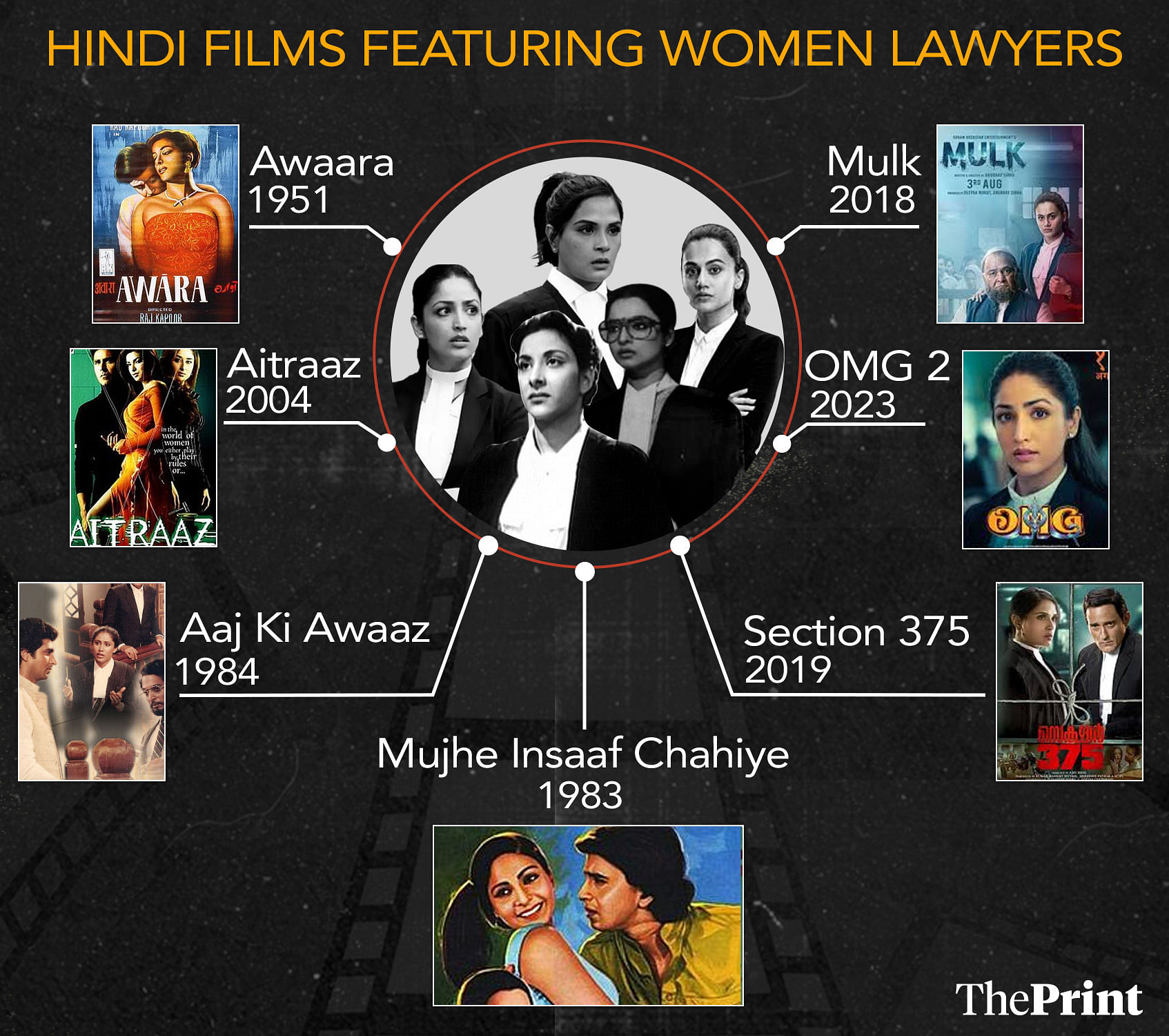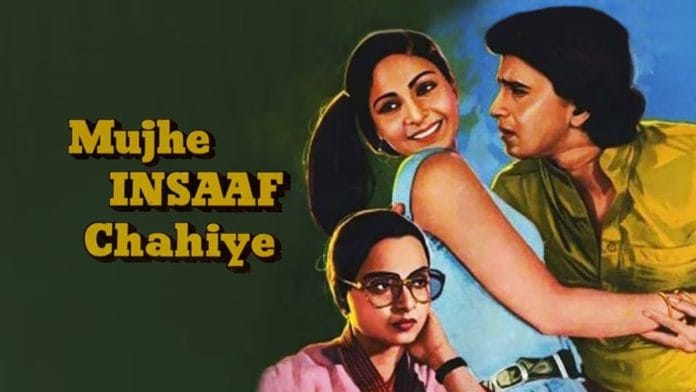A successful lawyer fights and wins a case for her client. It may sound banal. But when that lawyer is a single mother fighting for a new mother betrayed by her lover, it is anything but. T Rama Rao’s 1983 film Mujhe Insaaf Chahiye is a classic that has aged well.
In the dramatic courtroom climax, the lawyer Shakuntala—played brilliantly by Rekha—delivers a searing monologue that exposes society’s hypocrisy. She’s defending a young woman, Malti (Rati Agnihotri), who’s been abandoned by her lover. He refuses to admit that he is the father of their child. Malti challenges not just the court but the ingrained double standards women face.
“Today’s woman isn’t like [the mythical] Shakuntala, she wouldn’t give birth in the jungle, instead she will stand in the court and prove who the father of her son is. Malti is one of those women,” thundered Rekha in the courtroom. It became a rallying cry for women across India. The tragedy is that it holds true even today—more than 40 years later.
Mujhe Insaaf Chahiye stands out for its bold narrative and received both critical and commercial acclaim at the time of its release. The tight scenes and sharp dialogue propel the movie forward. The stellar performances by Rekha, Rati and Mithun Chakraborty who plays the lover, leave a lasting impression.
That said, the film is not without its fair share of melodrama emblematic of Bollywood in the 1980s. This was also a time when directors were experimenting with socially conscious movies. Women’s rights, justice and equality were popular themes in that decade including in Arth (1982) and Rudaali (1983). These women-led movies explored themes like infidelity and questioned tradition. The women were not victims but individuals seeking empowerment.
Mujhe Insaaf Chahiye was particularly impactful. It addressed themes of premarital relationships and single motherhood in a conservative society.
It was Rao’s second success of the year, following Andhaa Kaanoon, which marked Rajinikanth’s Bollywood debut.
Also read: Disturbing, unsettling, but necessary—Shyam Benegal’s ‘Nishant’ could easily be a 2024 story
Rekha’s show
It wouldn’t be an exaggeration to say the movie rested on Rekha’s able shoulders. The plot is simple: Malti is a young and ambitious woman who falls in love with her college friend Suresh, whose father is a lawyer (played by Danny Dengzopa). She becomes pregnant, but her lover is unwilling to acknowledge their child and abandons Malti under the pretext of societal and familial pressures.
Devastated yet undeterred, she decides to fight for her child’s legitimacy and confront Suresh in court. Enter Rekha as Shakuntala, a well-known lawyer.
Rekha’s entry catapults the movie into a league of its own. Her courtroom deliveries are powerful—a reminder to the viewer of her onscreen presence. She unapologetically questions why society is quick to shame women for their choices while excusing men for abandoning their responsibilities. It leaves everyone silent.
The intensity of this moment is heightened by the emotional stakes of the narrative, as Malti sits in the courtroom, her dignity on the line.

Agnihotri brings innocence and vulnerability to Malti’s character. Her transformation from a naive girl in love to a woman fighting for her rights is portrayed with sincerity. Meanwhile, Chakraborty, as the morally ambiguous Suresh, effectively captures the arrogance and cowardice of a man unwilling to take responsibility for his actions.
Also read: 1 night, many crooks, & Madhubala’s comedy—Gateway of India isn’t a regular Bollywood masala
A compelling watch
Rao’s direction ensures that the film remains engaging without becoming preachy. The pacing is steady, with moments of intense drama interspersed with emotional depth.
The screenplay by Subhash Gupta and Rahi Masoom Raza strikes a fine balance between entertainment and messaging.
Here, the music takes a backseat, and Laxmikant-Pyarelal’s scores could keep up with the unfolding drama. Songs like Prem Doot Aaya and I Love You don’t have much recall value
But nobody watches Mujhe Insaaf Chahiye for the songs. We watch it for Rekha—and for the powerful portrayal of single mothers.
(Edited by Theres Sudeep)







The review is great and I like that they review relatively unknown classics from a bygone era.
Rekha’s able shoulders carried a lot of films.
But your shoulders, Ms. Gulati, are not able to carry the heavy burden of journalism. It becomes clearer with each new article of yours.